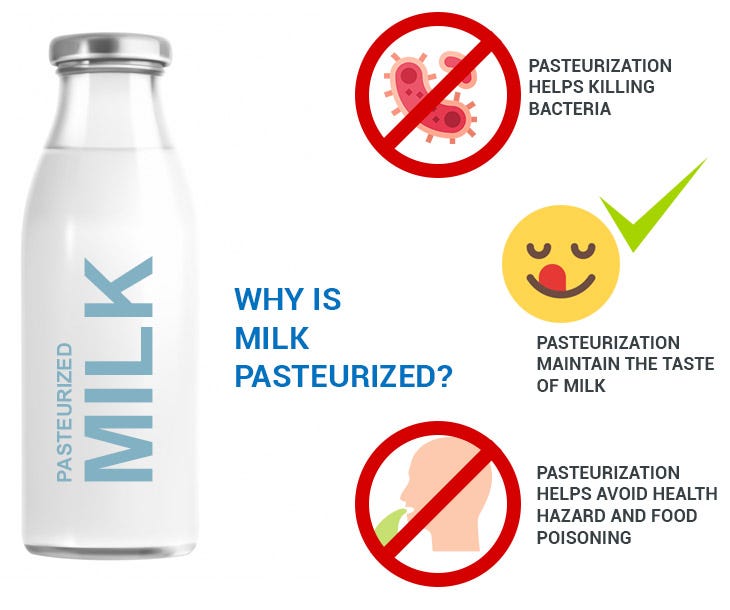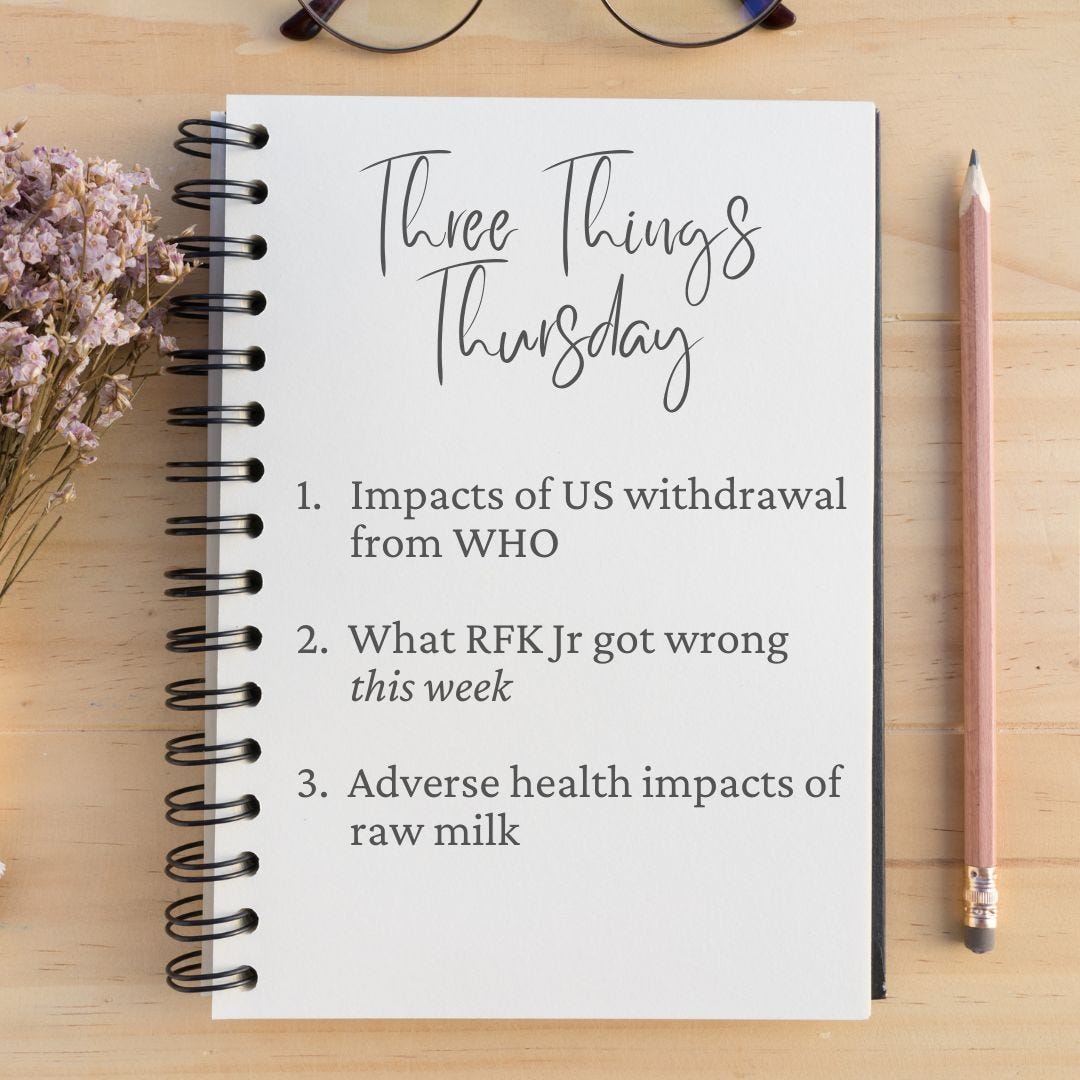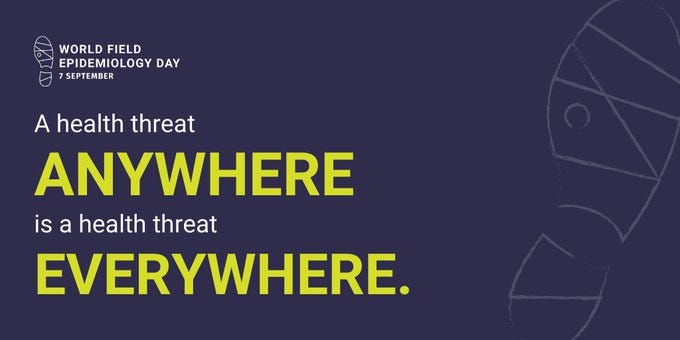Three Things Thursday highlights three things I am paying attention to as an epidemiologist each week. As we celebrate the first day of spring today, the end of respiratory virus season is within sight. Influenza cases are down and things are all quiet on the COVID front.1
Five years ago this week, President Trump issued new guidelines urging people to avoid social gatherings of more than ten people and to restrict discretionary travel; he noted that restrictions could be in place through the summer. Here in Pennsylvania, (then) Governor Wolf ordered a statewide shutdown of "non-life sustaining businesses" and schools were closed for the rest of the year.
In some ways, it feels like a lifetime ago. In others, it feels like just yesterday.
Our local newspaper has been running a series of stories about the 5th anniversary of the COVID shutdown, and the overriding theme of those articles has been I just want to forget it ever happened. One of the headlines, a quote from a healthcare administrator, read “Let’s pray we don’t have to face this again.”
We CANNOT pray away the next pandemic. We MUST prepare for it.
History teaches us that ignoring the past and failing to learn from it is NOT an appropriate response. Following the Sept 11th terrorist attacks, which many of us want to forget and pray will never happen again, significant lessons were learned and policy changes implemented, including the creation of the Department of Homeland Security, enhanced intelligence capabilities, and strengthened border security, all aimed at preventing future terrorist attacks and improving national security.
The same strategy is needed now – five years after the pandemic. We need new policies to prevent and prepare for the next pandemic, and we need to advocate for changes to our healthcare system. We need to be prepared for the next pandemic because – believe it or not – most of us will (likely) live through another pandemic. It could be avian influenza. Or another coronavirusus. We could see the catastrophic effects of a local measles outbreak. Or it could be a new pathogen.
The next pandemic is just one sneeze, animal spillover, unvaccinated child, or international plane ride away. We cannot pray that this won’t happen again. We need to face the reality that it will. And we need to take the lessons learned in 2020 and prepare, just like we did after 9/11.
To be prepared, we need to use data-informed information to guide our development of policies, programs, recommendations, and interventions. This week’s three things focus on setting the record straight — the impact of the US’s withdrawal from the WHO will have on our health, what RFK Jr got wrong this week, and everything you need to know regarding the health risks of raw milk.
Hoping this post helps to educate and empower you
to be healthy and create healthy communities.
Impacts of the US Withdrawal from WHO
Moments after becoming President, Trump announced that he would withdraw the US from the World Health Organization (WHO). The WHO is responsible for “coordinating the world’s response to health emergencies, promoting well-being, preventing disease, and expanding access to health care. By connecting nations, people, and partners to scientific evidence they can rely on, we strive to give everyone an equal chance at a safe and healthy life.”
On Monday, the Director-General of the WHO spoke about the consequences of the US withdrawal from the WHO, saying it is threatening to reverse years of progress in the fight against diseases like HIV, tuberculosis, and measles. He also called on the Trump Administration to reconsider its decision to leave.
We are already seeing the impact of the US withdrawing funding for international aid: malaria vaccine research has slowed/stalled, the medical supply chain has been disrupted/derailed, and mass vaccination campaigns for measles and polio have ended. According to the Director-General, “If disruptions continue we could see an additional 15 million cases of malaria and 107,000 deaths this year alone, reversing 15 years of progress.”
According to Handaa Enkh-Amgalan, a member of the WHO Civil Society Task Force on Tuberculosis —
“We are on the brink of a crisis, one that could reverberate across borders and generations if we don’t act decisively.”
Cutting international aid to balance a budget will have expensive (and potentially deadly) consequences because —
What RFK Jr Got Wrong This Week
Let’s start with measles… last Tuesday, when speaking about the MMR vaccine RFK Jr stated on Fox News that, “There are adverse events from the [MMR] vaccine. It does cause deaths every year. It causes — it causes all the illnesses that measles itself causes, encephalitis and blindness, et cetera. And so people ought to be able to make that choice for themselves.”
This is INCORRECT.
The MMR vaccine does NOT cause death, illness, encephalitis, or blindness.
According to the Infectious Disease Society of America, there are —
“no deaths related to the measles, mumps, and rubella vaccine in healthy individuals.”
In fact, a 2024 study estimated that measles vaccines prevented 93.7 million deaths globally between 1974 and 2024.
The MMR vaccine saves lives. The virus causes death. RFK Jr got it wrong. All wrong.
RFK Jr also got it all wrong when speaking about avian influenza this week…
Again, while speaking on Fox News, RFK Jr made light of the continued spread of H5N1 among dairy cows, poultry, wild birds, and humans, saying it "is not dangerous to humans,” despite the fact that an individual has died from the disease.
In a post I wrote to RFK Jr a few weeks ago I noted this.
“While the risk of person-to-person spread of avian influenza remains low, concern in the public health and medical communities is increasing. As head of HHS, you need to be on alert — all the time; watching constantly. Interactions with USDA and the states are necessary. It is NOT time for the public to worry, but the public health and medical communities need to be.
…the number of individuals with H5N1 is greater than the current case count. And we do not yet understand how the disease is transferred from animals to humans.
Answers to questions about disease spread are needed.
Updated case counts, which means increased testing of individuals with exposure to birds, poultry, or dairy cows, are needed.
We should also be steadfast in our commitment to genotype every sample from individuals who test positive for influenza A to ensure they are not infected with H5N1.
The public health & medical communities must be alert.
As Secretary of HHS, you must be alert, too.
RFK Jr dismissing the risks of avian influenza puts all of us at risk.
And as Taylor Swift sings…
Miscommunications lead to fall out
So many things that I wish you knew
So many walls up I can't break through
RFK Jr — if you only knew the damage you are doing.
Adverse Health Effects of Raw Milk
A new survey from the Annenberg Public Policy Center (APPC) at the University of Pennsylvania shows that ONLY 56% of US adults know that drinking unpasteurized, or raw, milk is less safe than drinking pasteurized milk.
Raw milk is dangerous.
Drink pasteurized milk.
Pasteurization is a process in which packaged and non-packaged foods (such as milk and fruit juice) are treated with mild heat (<100 °C) to eliminate pathogens, such as viruses & bacteria, and extend shelf-life. Learn more about the process by watching this short video. When you go to buy milk, you should look to see that the label says PASTEURIZED.
Drinking unpasteurized (also known as raw) milk can make you very sick. And with H5N1 in dairy cows, there are increased risks and a lot of uncertainties associated with drinking unpasteurized milk.

It has been a rough week. And inspired by the words of Taylor Swift —
“…the story of [public health] looks a lot like a tragedy now.”
But I am continuing to double down on my mission and will work hard and more collaboratively to CREATE HEALTHY COMMUNITIES FOR ALL.
Please do not forget to —
Click the “Like” button on the posts you enjoy. It’s a small thing, but it helps.
Share posts, either on social media or with your friends and family.
And stay in touch — What questions do you have? What information do you need? concerns are keeping you awake? Let me know and we can discuss them together.
Epi(demiology) Matters is written by Dr. Becky Dawson, PhD MPH — an epidemiologist, teacher, mom, wife, and dedicated yogi. She is a tenured professor at Allegheny College, Research Director at a community hospital, and an exclusive contributor (all things health & medicine) at Erie News Now (NBC/CBS). Her goal is to create healthy communities for all. She writes Epi Matters — first & foremost because epidemiology does matter (to all of us) and she hopes that each post will help to educate and empower readers to be healthy and create healthy communities.
Be sure you and your friends and family are subscribed so you don’t miss a post —
Epi(demiology) Matters is free — because science, reports, news, updates, and alerts about health should NOT be behind a paywall. EVER. Everyone needs access to up-to-date health information in order to be healthy and create healthy communities for all.
COVID surveillance data has not been updated since March 8. We are a week behind.








I appreciate your posts very much.
Given the sharp correlation between the WHO’s ominous pandemic declaration, of March 11, 2020, and hospitals and nursing homes turning into killing fields shortly thereafter … I’d venture that withdrawing from the WHO is a healthy corrective!